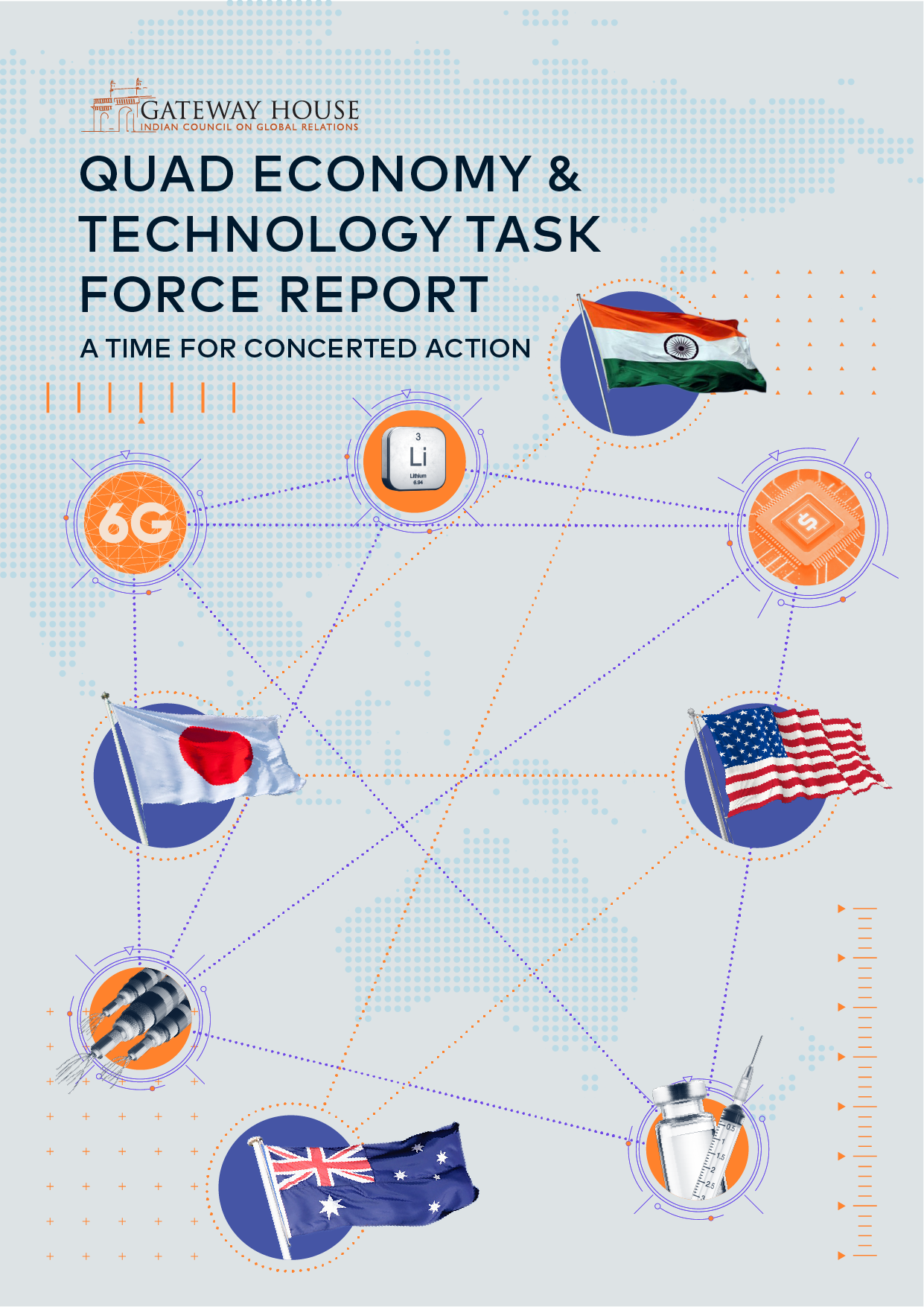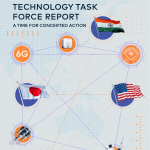
The Quad Economy and Technology Task Force was conceived in 2020 to study promising areas for increased cooperation between the Quad countries of Australia, India, Japan and the United States beyond the security maritime partnership they already have established.
The onset of the Covid-19 pandemic underlined the dependencies and vulnerabilities of the Quad nations individually and as a group. It bought an urgency to developing multi-stakeholder economic and technological cooperation between Quad members, identifying areas for collaboration, and expanding and deepening a virtuous cycle of interdependence among the four democratic nations.
The Task Force includes 31 members from the four Quad countries, and is led by co-chairs Dr. Lisa Curtis, Senior Fellow and Director of the Indo-Pacific Security Program, Centre for New American Studies, Washington D.C., and Dr. Surjit Bhalla, Executive Director for India, International Monetary Fund. Gateway House, which acts as the secretariat of the Task Force, conceived and identified five study areas for the Task Force – the Pharmaceutical Sector, Critical Minerals Supply Chains, Financial Technology and Cybersecurity, Space and 6G, and Undersea Communication Cables. The Task Force was divided into five Working Groups whose members have extensive and varied expertise on the subjects. The Task Force has run for five months, beginning with its first meeting on March 23, 2021, and culminating in the final report to be released on August 23, 2021.
The Task Force found commonalities in the five study areas – in particular, the need to increase economic and technological interdependence among the Quad countries and to establish common and updated rules and standards for emerging technologies.
Supply chains received critical attention. In the area of pharmaceuticals, the Task Force recommends the speedy production, distribution and rollout of vaccines to all regions, in particular the Indo-Pacific. On the challenging issue of the waiver of Intellectual Property Rights, a pragmatic and immediate solution is to increase the use of licensing agreements. On these and the issue of standards, efforts to engage with willing partners under the Quad Plus-Plus formula must be intensified.
Since rare earths and other minerals that are critical for the future economy are available only in certain regions, supply chains for them can be strengthened by creating deep financial markets similar to those that exist for bullion and oil. The Quad nations also can create a mechanism to monitor takeovers of rare earth assets and critical mineral supply chains, especially by state-owned enterprises, which lead to monopolies and artificial shortages.
Undersea communications cables, which carry 95% of global data, is an area where the Quad has an advantage arising from its leading companies in the sector and its growing markets in countries like India. A public-private partnership to create an independent infrastructure provider for undersea cables in the Indo-Pacific region will advance the technology. Most importantly, the Quad and its partners must actively coordinate participation in international institutions like the International Telecommunications Union to influence Information and Communications Technology (ICT) standards-setting positively. A Quad Command for non-traditional maritime security threats will be beneficial in executing these plans.
A Quad Strategy for 6G technology standards must be put in place through the Quad or the D-10 grouping with a democratic ethos and transparency built into its research, development and deployment. Establishing an ICT sub-working group within the Quad’s existing Critical and Emerging Technology Working group will enhance the standards-setting exercise.
Nowhere it is more important to conceptualize and coordinate common standards for the Quad than on cyber security and data protection. The four Quad nations can jointly use their significant niche capabilities in finance and technology, and their capital, to expand access of fintech in developing countries.
You can download the PDF version of this report here.
This report was exclusively written for Gateway House: Indian Council on Global Relations. You can read exclusive content here.
For interview requests or for permission to republish, please contact outreach@gatewayhouse.in.
© Copyright 2021 Gateway House: Indian Council on Global Relations. All rights reserved. Any unauthorized copying or reproduction is strictly prohibited.


